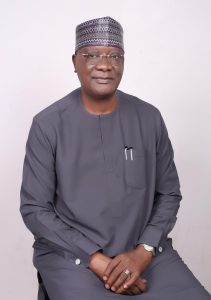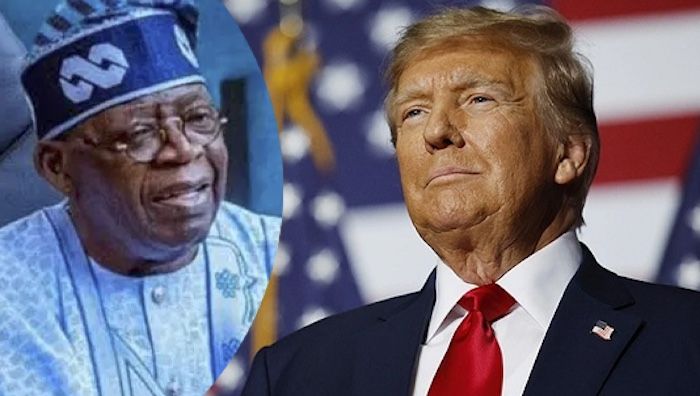By Friday Omosola, Fatimah Idera and Helen Okechukwu
The New Daily Prime reported on Tuesday that the United States has reduced the validity of non-immigrant visas for Nigerian citizens to three months, allowing only a single entry.
This marks a reversal of the five-year multiple-entry visa agreement that had been in place since 2023, when both countries agreed to issue long-term visas for business and tourism purposes.
The decision follows a 60-day ultimatum previously issued by U.S. authorities, urging several countries—including Nigeria—to comply with updated U.S. entry requirements.
According to initial reports, the policy is driven by growing concerns within the U.S. administration over what it describes as “unacceptable security risks” and systemic failures in identity verification, visa integrity, and anti-terrorism cooperation.
Despite being granted until early August to implement tangible improvements, the United States moved ahead with its decision to restrict visa entry for Nigerian nationals, issuing the directive before the expiration of the 60-day ultimatum.
It remains unclear, however, whether the new limitations apply uniformly across all non-immigrant visa categories, including student (F-1) and exchange visitor (J-1) visas.
Nigerians react to U.S. single-entry visa policy
In interviews conducted by this newspaper, several Nigerians expressed deep concern over the United States’ new visa policy limiting non-immigrant visas to a three-month, single-entry term for Nigerian citizens. The measure is widely seen as a setback for travel, business, education, and diplomatic ties between the two countries.
Many called for immediate diplomatic engagement to challenge what they described as a discriminatory policy unfairly targeting Nigerian travellers.
Samson Famous, a real estate agent based in Niger State, said the policy would severely impact frequent travellers. “Anyone traveling to the U.S. now has to reapply for a visa every time they return. That’s costly and stressful,” he said.
He warned that the measure could disrupt international business operations and limit trade, adding, “There’s no longer a guarantee of a two- to five-year visa. Now, it’s just three months. For business people or tourists who travel frequently, this will be a serious challenge.”
READ ALSO:
UAE slams fresh visa restrictions on Nigerians, suspends transit applications
FG vows to curb visa overstays as Tunji-Ojo discusses new US policy with ambassador
Nigerian economy showing steady improvement, says Minister
Mr. Famous also attributed the change to Nigeria’s ongoing security issues. “Insecurity in Nigeria spills over internationally. I heard about a recent scam involving a Nigerian who defrauded the U.S. president. Incidents like this may be influencing these kinds of decisions,” he added.
Temitope Omosebi, founder of Attack Against Asthma, an NGO, raised concerns from an academic perspective. He said the policy poses a serious challenge to Nigerian doctoral and post-doctoral students.
For instance, if a student leaves the U.S. for a conference or family emergency, they’ll need to reapply for a visa to return. This can cause delays, financial burdens, or even academic disruptions, he explained.
Omosebi, who holds an MSc in Psychology from the University of Ibadan and a programming diploma from IBT College in Canada, added that students relying on international funding may now face added pressure. “Institutions may prefer candidates from countries with more stable visa conditions. That puts Nigerians at a disadvantage.”
James Chika, a recent graduate in Ibadan hoping to pursue a master’s degree in the U.S., described the policy as “shutting the door on hopes that were already hard to reach.” He said, “It doesn’t just complicate travel; it disrupts careers, family plans, and dreams.”
Bolanle Sijuade, a Lagos resident, echoed these concerns. “This isn’t just about visas. It’s about our country’s image. The Nigerian government must take real steps—strengthen our systems, secure borders, and build institutional trust—to restore credibility.”
She emphasized the need for leadership and reform, stating, “This is a wake-up call. We need proactive diplomacy and internal reforms to regain respect on the global stage.”
Mr. Famous also suggested that the Nigerian government should create policies that support citizens pursuing education and business abroad. “If we want to ease the impact of this policy, we must address both security and economic challenges at home,” he concluded.
Expert urges Nigeria to respond with reciprocal immigration measures

Weighing in on the United States’ new visa policy, retired Nigerian diplomat and Officer of the Order of the Federal Republic (OFR), Ambassador Ibrahim Mohammed Bashir, emphasized the principle of reciprocity as a cornerstone of international diplomacy.
“If the U.S. deems this policy necessary to protect its interests, then Nigeria—and other affected countries—should consider proportionate responses,” he stated. “Diplomatic relations are built on mutual respect and equal treatment. Sovereignty is not determined by size or population; every nation is equal under international law.”
He cautioned against passivity, asserting that diplomatic engagement should reflect equality, not subservience. “A sovereign is a sovereign, regardless of size or population. Whether a nation has 100,000 people or 200 million, it deserves the same respect. If the U.S. chooses to limit access, then why should Nigeria continue to offer Americans multiple-entry visas and extended stays without reciprocation?”
Bashir acknowledged the U.S.’s right to enforce its immigration policies, particularly under President Trump’s administration. However, he argued that Nigeria must not accept such decisions unchallenged. “Policies may change with future administrations, but Nigeria must act now to assert its sovereignty and protect its citizens from unfair treatment.”
He also urged Nigerians to focus inward and recognize the economic opportunities that exist within the country and across Africa. “We should stop equating success with emigration. Nigeria is rich in potential, and our people can thrive without constantly seeking opportunities abroad.”
Reflecting on Africa’s foreign policy failures, Bashir lamented the continent’s lack of integration and over-reliance on Western powers. He pointed to the underutilization of the African Continental Free Trade Area (AfCFTA), calling it a missed opportunity for strengthening intra-African economic ties. “Instead of always looking to the West, why not build partnerships in Kigali, Cape Town, or Nairobi? Africa has much to offer its own people.”
He also criticized the West’s double standards, noting how Nigerian citizens often face hostility or bureaucratic red tape abroad, while Westerners enjoy generous hospitality in Nigeria.
“It’s a one-sided relationship. When their diplomats visit, they leave in awe of our warmth and generosity. Yet our own people are treated with suspicion and condescension.”
Bashir urged Nigerians to carry themselves with self-respect and integrity when abroad. “We must change the narrative. If we don’t value ourselves, others won’t. National pride starts with how we represent ourselves—at home and internationally.”



